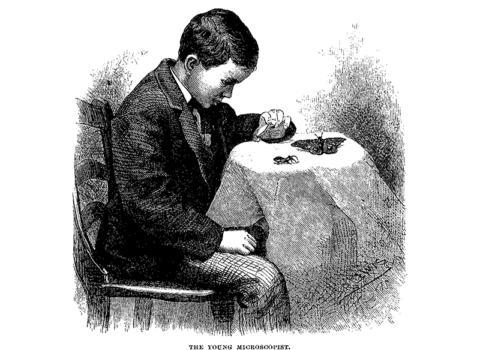The Maginot Line
During the course of the current pandemic crisis, received wisdom about globalism and free-market economics—indeed capitalism itself—has taken a heavy beating. In less than a blink of an eye, we’ve witnessed a violent overthrow of the cherished assumption that the so-called “laws of supply and demand”—known to true believers as “the magic of the marketplace”—are capable of responding quickly to, say, a microscopic virus that seems to easily get around human immunological defenses. Americans, normally devout parishioners of the Free Market Church, are having trouble understanding the serious lack of ventilators in hospitals, the scarcity of specialized swabs for virus tests, and the shortage of protective masks. It’s hard for them to believe that the logistical chain required to produce those urgently needed articles, often dependent on cheap labor, originates very far from where they live. Or that there’s not sufficient production in American factories. Or that it was communist China that delivered the first shipment of emergency medical supplies to New York from abroad in a specially organized “air lift.”
In spite of President Trump’s increasingly interventionist actions in recent weeks, I don’t think capitalism is on the verge of disappearing. But in the aftermath of this crisis, one might hope for a return to a healthy consideration of the benefits of democratic socialism, and of the idea that a government operating without a profit motive can do a better job of protecting its citizens—by preparing for catastrophes well in advance, rather than being blinded by short-term greed. People living in Canada or Britain are lucky in that they aren’t stuck in a one-sided political system whose starting point is the celebration of the “entrepreneur” and his victories in the world of finance and marketing.
I realize, of course, that the United States isn’t exceptional in its tendency to delude itself in the face of disturbing reality and existential dangers. My readers by now know my bias in favor of the French social model as compared with the American model. In the midst of a pandemic, I strongly prefer to listen to the declarations of French President Emmanuel Macron than to the nonsense spouted by President Trump. Trapped in my apartment with more time than usual to rummage around in my bookshelves, I began to reread the war memoirs of Charles de Gaulle, who from the very first hours of World War II was a leader in the struggle of the French Resistance against the Nazi virus that began to spread in France in June 1940. And sure enough, his muscular, lucid prose had a tonic effect, giving me encouragement if not wisdom. But at the same time, de Gaulle’s tale is a succinct account of France’s blindness and defeatism that bears similarities to the current crisis. Having recognized the new threat from the German side of the Rhine very soon after Adolf Hitler’s accession to power in 1933, de Gaulle ceaselessly advocated the creation of a new mechanized army—fast-moving armored divisions with a mixture of light and heavy tanks, supported by attack aircraft, which could as their primary function mount a preventive assault or, in the case of a newly aggressive Germany, rapidly counterattack.
Colonel de Gaulle’s farsightedness was greeted by the French military and successive governments with at the best indifference and at the worst hostility. Frozen in orthodoxy and the received wisdom of the time, the established order stubbornly insisted on reinforcing the Maginot Line—fixed military fortifications at the border between France and Germany—with the goal of repulsing a direct attack, a strategy both passive and strictly defensive. De Gaulle’s 1934 book, Vers l’armée de métier (“The Army of the Future”), sold very poorly in France, but it was translated into German and read by the Führer’s advisers (de Gaulle writes that he was “informed that [Hitler] himself had had [my] book read to him”). In March 1938, when Hitler merged Germany and Austria in the Anschluss, he was supported by a mechanized division that presaged the blitzkrieg, which two years later reached France by invading Belgium, thus bypassing the Maginot Line. In his memoirs, de Gaulle can only sigh about the establishment’s reaction to the military display that accompanied the Anschluss: “The authorities in France, far from taking this harsh demonstration into account, set about reassuring the public by ironically describing some breakdowns that affected a few German tanks in the course of their forced march.”
Donald Trump reminds me of the authorities in prewar France. Instead of confronting the real enemy, he offers a never-ending stream of sarcastic and insulting remarks on the subject of his perceived enemies: the Chinese, Democratic governors, journalists, anyone who disagrees with or questions him. He seems to consider himself a kind of Maginot Line, a barrier against COVID-19, standing firm in the face of the virus’s attacks on his capitalist homeland. His ignorant wish to reopen the economy by Easter with “packed churches” (a statement he later walked back) recalls a conversation between de Gaulle and former French Prime Minister Léon Blum in January 1940, five months before Germany’s invasion of the country. In the course of their talk, de Gaulle gave Blum his analysis of Hitler’s military choices, which, as he saw them, came down to two possibilities. When spring came, de Gaulle observed, Hitler would attack either “westward to take Paris or eastward to reach Moscow.” “Attack westward?” Blum replied in surprise. “But what could they do against the Maginot Line?”



